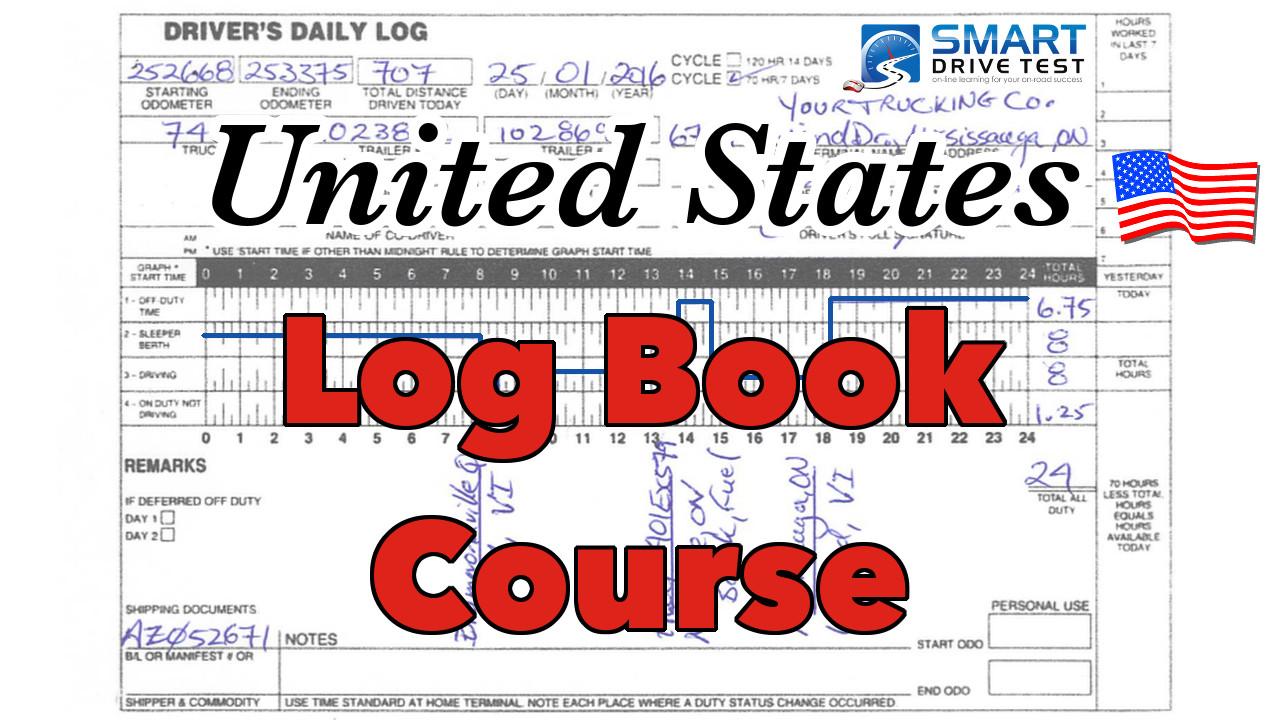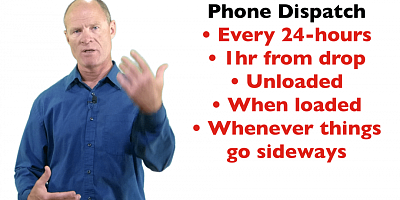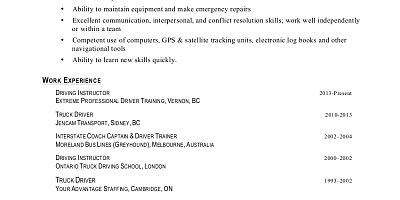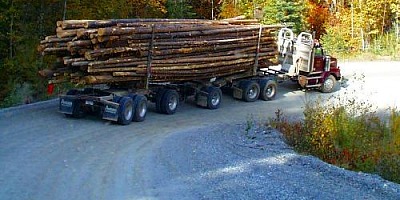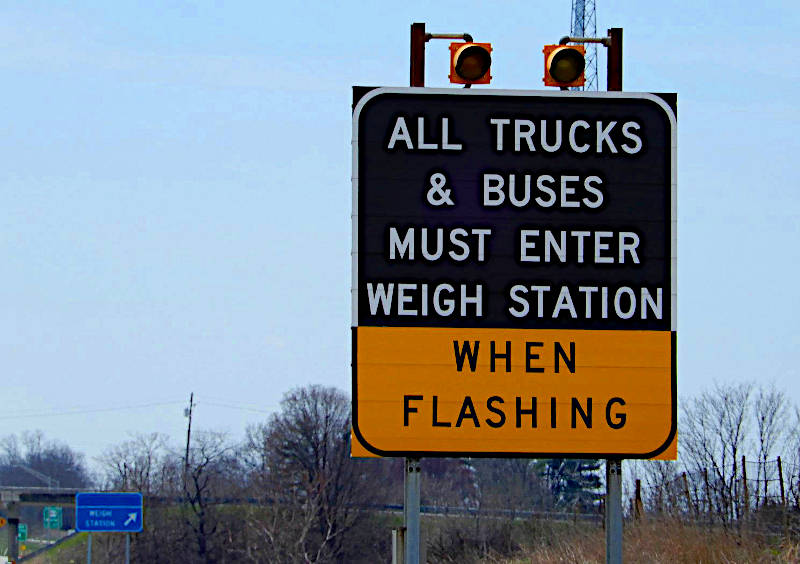Completing paperwork is a primary task of truck & bus drivers.
Updated Jan 2021
Introduction
On of the job skills required for professional drivers is paperwork.
This applies more to truck drivers than bus drivers.
There is a fair amount of paperwork to do.
 Part of the job as a truck driver is to fill out and keep track of the required paperwork. Paperwork ensures that both you and the company get paid.In the 1990s, when I was running LTL freight—less than load—less than load stands for five, six, ten, twelve drops on a trailer.
Part of the job as a truck driver is to fill out and keep track of the required paperwork. Paperwork ensures that both you and the company get paid.In the 1990s, when I was running LTL freight—less than load—less than load stands for five, six, ten, twelve drops on a trailer.
And I was running into the United States, mostly into New York City and whatnot.
I could spend, a good hour, hour and a half doing paperwork before I headed to the border to get across to the other side.
Also log sheets, trip sheets, and other required paperwork.
All of those can require a fair bit of time and your ability to do paperwork is demonstrated even before you start the job.
Job Application
Your ability to do paperwork is demonstrated even before you do the job with your application to that company.
Your resume and cover letter and a job application, if the company has one that you have to fill out, are the first indicators that you are able to do paperwork.
And sometimes, if you're running long haul and you have to keep log sheets, trip sheets, bills of lading, receipts, all of those types of things, the paperwork can be quite extensive.
 Your job application, which includes your resume and cover letter, demonstrates your ability to do paperwork as a truck driver.
Your job application, which includes your resume and cover letter, demonstrates your ability to do paperwork as a truck driver.
So make sure before you apply to a trucking company, that your resume and cover letter are well done.
Go to one of the agencies in your town: there's lots of employment agencies around that will help you to design a cover letter.
Type it out.
Make sure it looks professional.
If there is a job application that you have to apply for the trucking company or the bus company that you're working for, ask him them a copy of the job application, take it home photocopy it, fill the first one out with all of the information, and then transfer it to the other one.
That way if you make a mistake or you scribble something out, you have a nice clean copy and it looks neat and well filled out.
Your cover letter, resume and job application are an indication that you can do the paperwork as part and parcel of the job you're doing as a truck or bus driver.
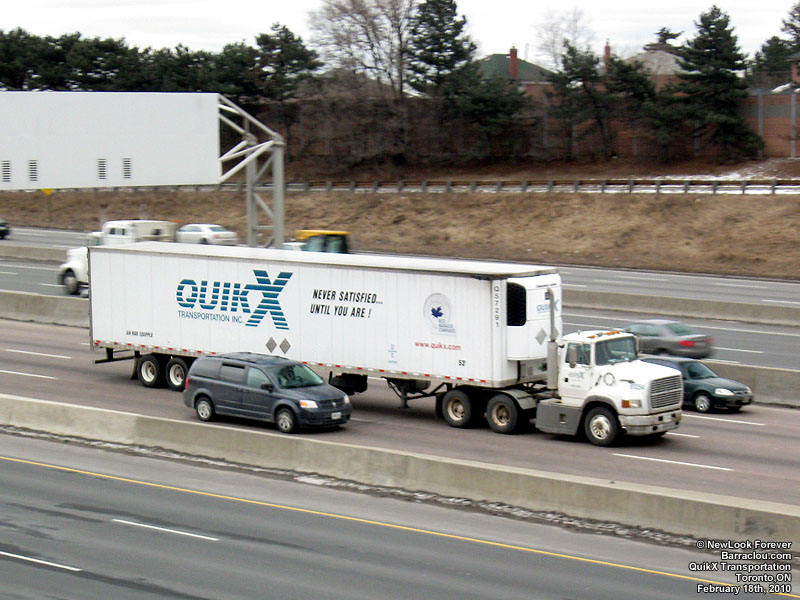 "Bills of Lading" is a fancy term for the freight that is on the truck. It's a contract stating what the freight is, how much in weight, and how it's to be transported.
"Bills of Lading" is a fancy term for the freight that is on the truck. It's a contract stating what the freight is, how much in weight, and how it's to be transported.
Bills of Lading (Freight Documents)
Next thing that you have to do as a truck drivers, you have to keep track of bills of lading - freight documents.
This is the contract between the person who buys the freight and the company that hires the trucking company to haul the freight.
So you need to keep track of bills of lading.
Essentially bills of lading document how much freight is on the truck or on your bus.
It's a signed contract - you have to sign it as the truck driver—as the representative for the trucking company—saying that you take responsibility for it and what they put on the truck is actually what is on the vehicle - the truck or bus.
So bills of lading and when you deliver the freight, you have to get the bills of lading signed to indicate that, yes in fact, you delivered it and the receiver or the consignee actually received the freight and then that way when you turn in your paperwork to the company they have a signed copy of the bills of lading and they can in turn bill the person who hired them to transport the freight and they get paid.
So the bills of lading are important because there are kind of a form of currency, that's the way that the trucking company gets paid.
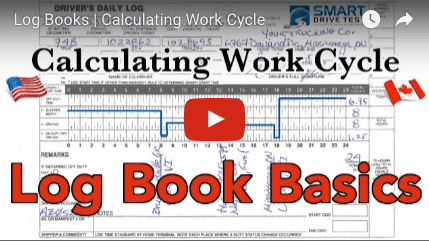 If you're driving beyond 100 miles (160km) of your home terminal you will be required to maintain and carry a logbook.
If you're driving beyond 100 miles (160km) of your home terminal you will be required to maintain and carry a logbook.
So make sure that you sign it when you pick up the freight and you get the person that shipping or receiving to sign your document before you take off.
Log Books
If you're required to keep log sheets because you're driving beyond 160 kilometers of your home terminal, or one hundred miles in the United States, you have to keep a log book.
And I'll put a card up here for you for the United States and Canadian playlists.
And you can look at those and figure out how to keep a log book.
If you're running into the United States or you're running from the States into Canada, you're going to have to do customs paperwork - border paperwork as well.
 If you're driving across an international border, you will be required to have a logbook according to the rules of the country you're in.
If you're driving across an international border, you will be required to have a logbook according to the rules of the country you're in.
And you can go on the web sites - I'll leave a link down in the comments here to the United States Customs and Canadian Customs depending on which way you're traveling, about which paperwork you have to do and how to fill that customs paperwork in.
As well that you can get some direction from your company personnel and other drivers in your company if you're running cross border.
Trip Sheets
Trip sheets - every company has a trip sheet and you have to fill out a trip sheet.
It has to be filled out accurately because the trip sheet is the way that you get paid.
Every company's a little bit different, and again like the customs paperwork, talk to your company personnel, talk to the other drivers, ask them and get them to help you fill out the custom [& trip sheet] paperwork.
Incident & Accident Reports
Finally, if you have incident reports or accident reports: the freight gets damaged, you get into a crash, or you damage the truck, somehow or something is inexplicable, you're going to have to fill out an incident report.
You're going to have to fill out an accident report.
Every company is a little bit different about how to fill out an accident report, how to fill out an incident report.
And again, I'll leave a card up here for filling out an accident report - filling out an incident report about damaged freight, damaged unit, or you got into a crash.
So that's other paperwork that you may or may not have to do.
 Truck driving is oh... so much more than just driving the truck.
Truck driving is oh... so much more than just driving the truck.
Receipts
Finally with your trip sheet, you'll have to keep track of receipts.
Receipts are important for expenses that you may or may not have.
You'll have fuel receipts, any expense receipts, toll receipts, cross-border receipts, if you're crossing the border.
All of those receipts have to be kept, have to be collated, and have to be recorded on your trip sheet.
So make sure you keep receipts.
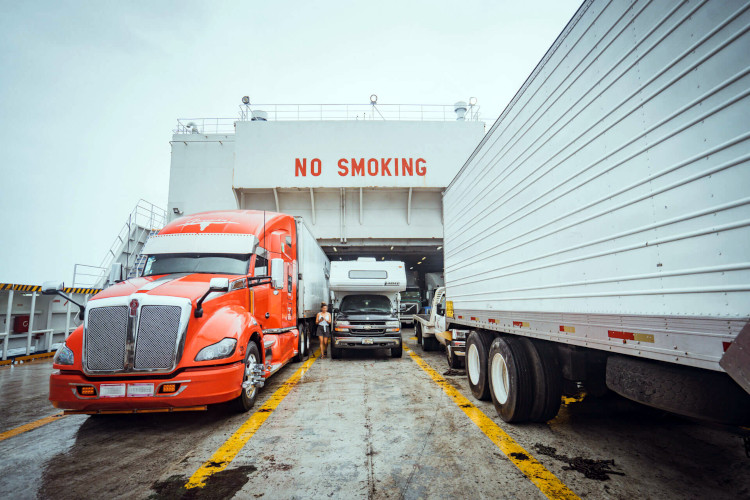 Ferries, fuel, repairs and any other expenses associated with the trip must have a receipt. Even if you pay with a credit card - get a receipt.
Ferries, fuel, repairs and any other expenses associated with the trip must have a receipt. Even if you pay with a credit card - get a receipt.
The best way to keep receipts is just have an envelope; keep all the receipts in the envelope.
Make sure you write your unit number on the receipts so they can track them in case they go get misplaced or out of sorts with the pile of paperwork that you hand into your company.
That way if they pick up the receipt, they know which unit number to allocate that receipt to.
So keep them in an envelope, and keep them in one of the cubbies inside the truck or bus or keep them in your briefcase or wherever else you keep your paperwork in the unit.
So make sure you keep track of receipts because you do want to get paid right.
So again the receipts need to be kept and they need to be kept with your trip.
If you do lose a receipt and this sometimes happens.
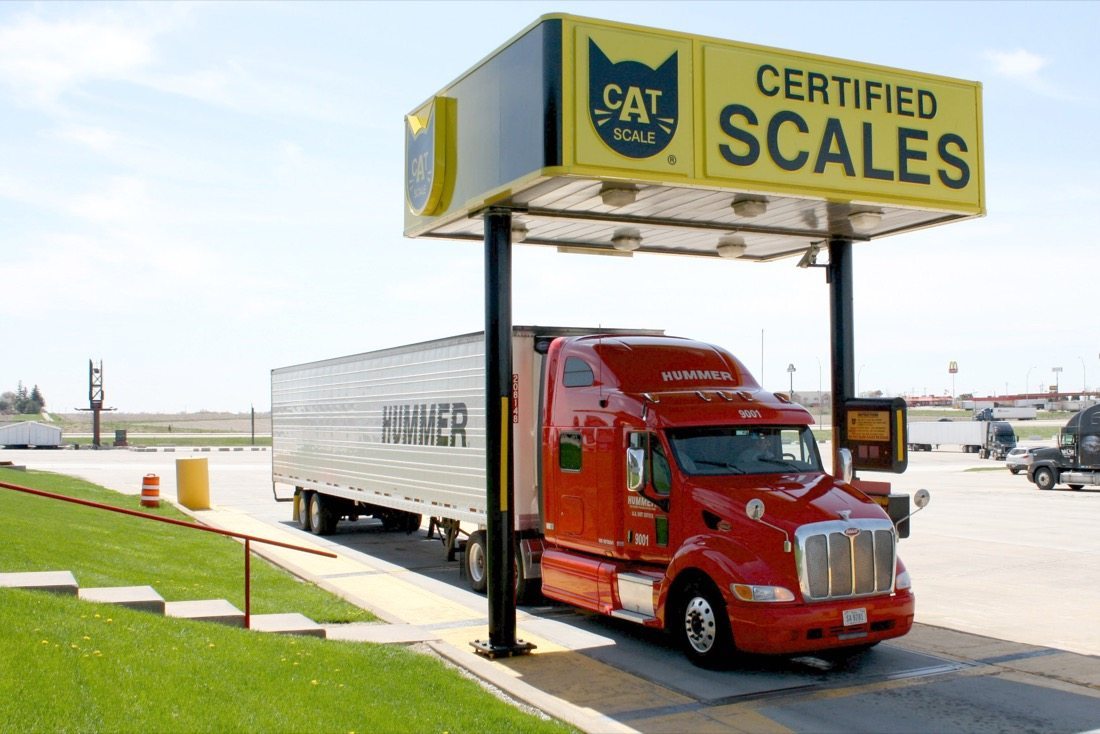 When you weight your truck, there will be a cost and receipt for that too. Keep the receipt with your paperwork.
When you weight your truck, there will be a cost and receipt for that too. Keep the receipt with your paperwork.
Just write one out, hand write it out - the date that you purchased whatever item you purchased, the cost of it, and then sign it and that way and just leave a note on your trip sheet in additional comments, that you lost the receipt.
That way you can get paid for it.
Conclusion
In conclusion, the paperwork for truck and bus drivers can sometimes be fairly extensive, especially if you're running log books, trip sheets, cross-border.
All of that can be fairly extensive.
Now the first way that you have to do paperwork and demonstrate to the company that you, in fact, can do paperwork is your job application, your resume, and cover letter.
Make sure your resume and cover letter look professional.
Go to one of the employment agencies in your town or city or community, & get them to help you.
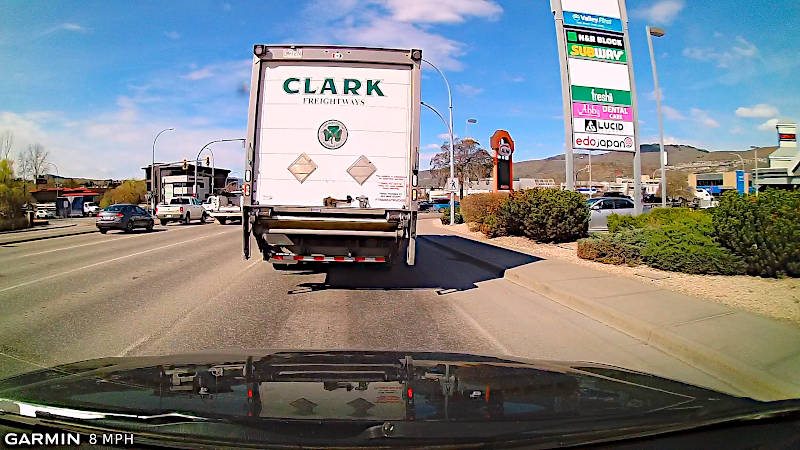 Your career as a truck or bus driver starts with your cover letter and resume. Get help to make those documents look professional.
Your career as a truck or bus driver starts with your cover letter and resume. Get help to make those documents look professional.
Get them to show you how to write out your cover letter and resume so that these looks professional.
That way it indicates to the company that you in fact can do the paperwork that's required as a bus or truck driver.
Bills of lading - get them signed, you sign them, hand them in to your company so they can get paid.
Trip sheets - make sure you fill out the trip sheet out correctly because that's the way that you get paid.
As well, receipts - keep track of the receipts, keep them in an envelope, keep them in a safe place so that they can turn them in with all of your paperwork.
Finally, incident and accident reports, if something happens to the unit you're driving, the freight gets damaged.
If you're a bus driver - if one of the passengers gets injured or you had, or you were delayed for whatever reason.
Finally, crash reports, if you get into a crash you can also fill out a crash report.
For bus and truck drivers the paperwork can be fairly extensive.
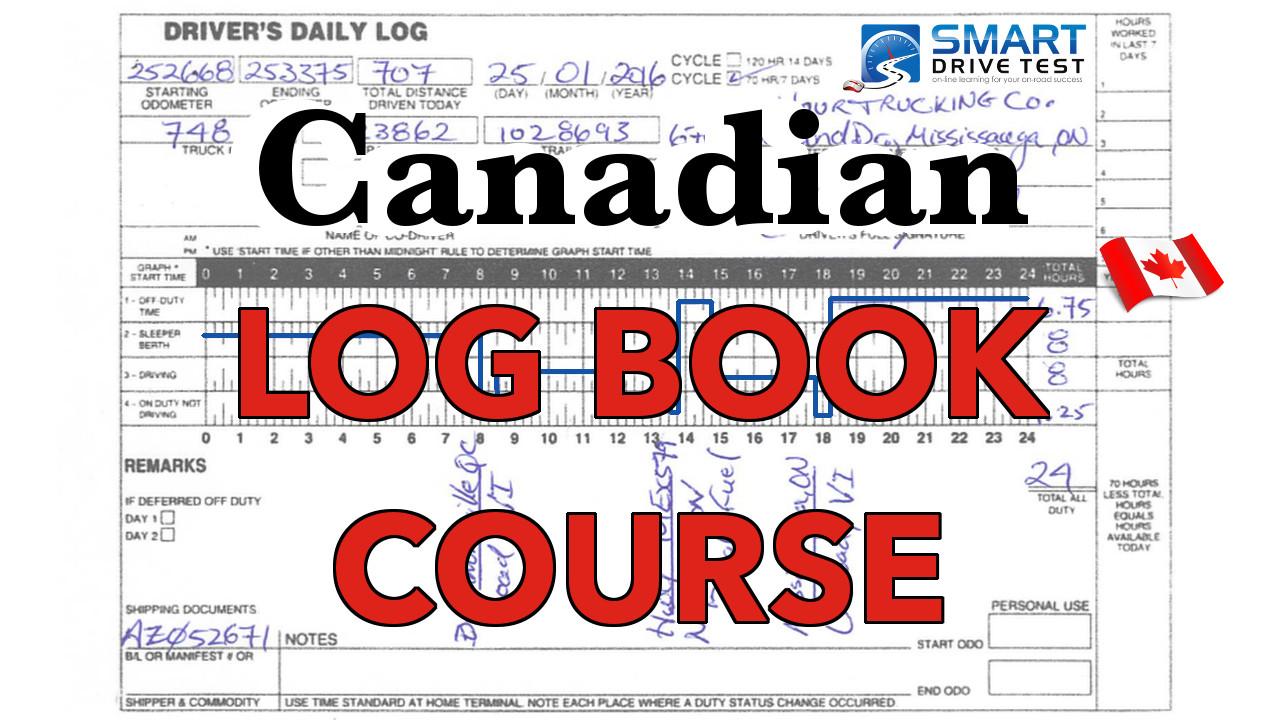
|
|
|

